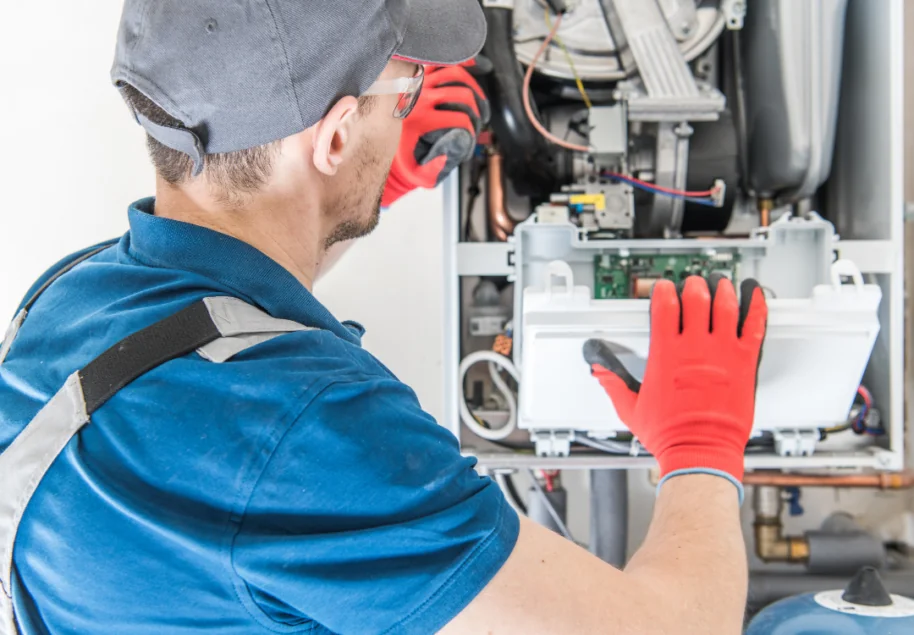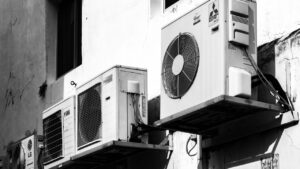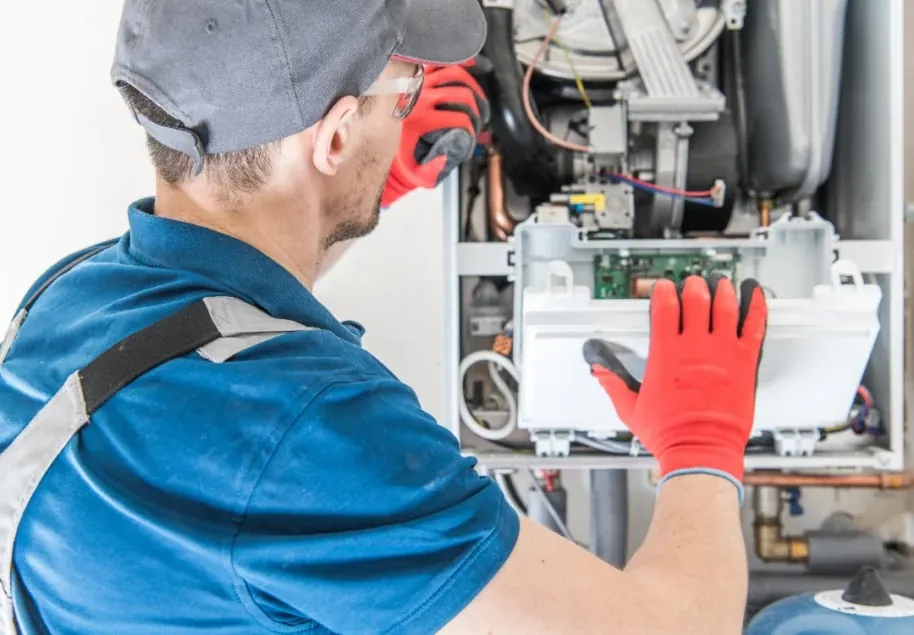AC Fuse Keeps Blowing? Here’s What It Means for Your HVAC System

If your AC fuse keeps blowing, it’s more than a minor inconvenience—it’s often the first red flag of a deeper issue inside your HVAC system. Especially for homeowners in Woodbridge, Lorton, and greater Northern Virginia, summers bring heavy usage that pushes cooling systems to the limit. A blown fuse in the middle of a July heatwave is not just frustrating—it can mean days of discomfort, expensive service calls, or full system breakdowns if not addressed properly.
This comprehensive guide covers the leading reasons AC fuses blow, what these issues mean for your system’s performance, and how to prevent them from returning. Most importantly, we explain when to call the professionals at Nice Heating and Air Conditioning, one of Northern Virginia’s most trusted names in AC repair and maintenance. With the right knowledge—and the right technician—you can restore your system, improve efficiency, and prevent serious damage to your home’s comfort system.
What Is an AC Fuse and Why Does It Matter?
An AC fuse is a protective component installed to shield your HVAC system from excessive electrical current. It acts as a safety barrier between your system and dangerous overloads. If the electrical load exceeds a certain threshold, the fuse will blow, breaking the circuit and stopping electricity from reaching the unit.
Fuses are typically located in the disconnect box near your outdoor unit or inside the indoor air handler. They are designed to fail before other, more expensive parts of your system do. This makes them essential for protecting critical parts like the compressor, blower motor, and control boards.
While a one-time blown fuse can result from a temporary power surge or voltage spike, repeated fuse failures indicate an internal malfunction that needs professional evaluation. Ignoring these warning signs can lead to further damage and much more expensive repairs.
1. Electrical Overload: The Most Common Culprit
By far the most frequent reason for a fuse to blow is electrical overload. This happens when the AC system tries to draw more current than the fuse is rated to handle. This excess draw may be due to various factors:
Common causes of electrical overload:
-
Clogged or dirty air filters that restrict airflow and cause the blower motor to work harder
-
Low refrigerant levels that make the compressor run longer and hotter
-
Undersized or improperly installed fuses that can’t handle normal startup surge
-
Failing capacitors, motors, or transformers drawing excess amps
-
Poor wiring or corrosion increasing resistance and heat
If your system regularly blows a fuse during startup or under heavy load, chances are there’s a bigger electrical demand than the system is designed to handle. Simply replacing the fuse won’t solve the underlying issue. A qualified technician will need to test the current draw and inspect internal components to pinpoint and resolve the overload.
2. Compressor Problems That Strain Your System
The compressor is essentially the engine of your AC unit. It handles the critical task of circulating refrigerant through the system. It’s also one of the most demanding components in terms of electricity.
If your compressor is malfunctioning or seizing, it may try to pull more power than normal. This can overwhelm the fuse, especially during startup. Common compressor problems include:
-
Shorted windings, which cause direct electrical shorts
-
Hard starting, where the compressor struggles to turn on
-
Overheating, due to poor airflow or refrigerant issues
If your system frequently blows a fuse right after turning on, and you hear humming, clicking, or buzzing sounds from the outdoor unit, there’s a strong chance the compressor is the culprit. A failing compressor doesn’t just draw more electricity—it risks complete system failure if not serviced.
3. Wiring Issues and Short Circuits
Electrical problems inside your HVAC system are often due to short circuits, which occur when wires touch each other or a metal surface, creating an unintended path for the electricity. This causes a sudden current spike that instantly blows the fuse.
In Northern Virginia, older homes in Lorton or Woodbridge may have outdated or degraded wiring. High summer humidity can also increase corrosion and compromise insulation over time.
Warning signs of short circuits or wiring problems:
-
Burning or ozone smell around your HVAC unit
-
Melted insulation or blackened wire connections
-
Fuses that blow immediately after replacement
This is one of the more dangerous causes of fuse failure and should only be handled by a licensed HVAC technician. At Nice Heating and Air Conditioning, we use advanced electrical testers to track down the short and repair it without risking fire or injury.
4. Dirty Components Causing System Overload
When the evaporator coils, condenser coils, or air filters in your HVAC system are dirty, the unit must work harder to push and condition the air. This extra strain causes components like the blower motor or compressor to draw more power than normal, increasing the risk of blowing a fuse.
In the Lorton area, where trees shed pollen and leaves regularly and homes endure long AC run times, systems are particularly vulnerable to buildup.
Cleaning tips to prevent fuse issues:
-
Replace your filter every 1–3 months, especially during summer
-
Schedule coil cleaning annually with a licensed technician
-
Keep vents and registers open and unblocked
Preventative cleaning doesn’t just avoid fuse problems—it extends the life of your AC system and improves energy efficiency.
5. Faulty Thermostats and Malfunctioning Contactors
Your thermostat is the command center for your HVAC system. If it malfunctions or sends erratic signals to the unit, it can trigger rapid cycling, where the unit turns on and off frequently. This increases electrical load and may cause the fuse to blow.
Similarly, the contactor is the component responsible for supplying power to the compressor and condenser fan. When a contactor sticks or fails, the result is an unstable power supply that can lead to fuse failure.
These parts are relatively inexpensive to replace, but they require professional testing to confirm the diagnosis. Don’t assume a new thermostat will solve the issue unless a technician has tested the control circuit.

6. Bad Capacitors Can Trigger Electrical Spikes
Capacitors help motors start and stay running. Over time, these components can lose their ability to hold a charge. When this happens, motors in your compressor or blower may try to start multiple times or draw extra amperage to get going—leading to blown fuses.
Signs of capacitor failure include:
-
AC unit tries to start but fails repeatedly
-
Clicking or buzzing noise before fuse blows
-
Visual bulging or leakage in the capacitor housing
If you’ve replaced a fuse and the AC still won’t run, the capacitor is one of the first components your technician will check. Replacing a failing capacitor is typically fast and affordable.
7. Outdoor Unit Blockages and Fan Problems
Your outdoor condenser unit requires proper ventilation to disperse heat. If it becomes obstructed with vegetation, debris, or pet hair, it can overheat and trip the fuse. Likewise, if the fan motor in the outdoor unit is stuck, seized, or shorted, it can create a dangerous electrical load.
Preventative tips:
-
Keep two feet of clearance around your outdoor unit
-
Trim shrubs, vines, and branches away from the system
-
Schedule seasonal inspections to test motor performance
These simple steps can prevent long-term damage and avoid costly emergency repairs during peak heat.
Recognizing the Signs of a Larger Problem why AC Fuse Keeps Blowing
Sometimes a blown fuse is just that—a one-time event. But when it happens more than once, or the fuse blows right after you replace it, it’s a strong indicator that something more serious is going on.
Here’s a quick guide to interpreting fuse behavior:
-
Immediate fuse blow = short circuit or dead compressor
-
Blows after running a while = airflow issue, dirty coils, or overheating motor
-
Random fuse blow = thermostat or capacitor inconsistency
Don’t continue replacing fuses without professional input. Each blown fuse means excess electrical current, and that’s dangerous for your equipment and your home.
Northern Virginia AC Systems and Fuse Risks
In Woodbridge and Lorton, AC systems work overtime in the summer. The unique climate adds stress to your unit and increases the likelihood of electrical failures.
Regional data shows:
-
65% of summer HVAC calls in Northern Virginia relate to electrical problems
-
80% of homes over 10 years old haven’t had an updated electrical inspection
-
Homes with annual maintenance are 55% less likely to experience fuse-related breakdowns
These numbers confirm what we see every summer: small electrical problems, left unchecked, become major issues. Stay ahead of repairs with seasonal inspections.
Partner with Nice Heating and Air Conditioning
When your AC fuse keeps blowing, guesswork isn’t enough. You need licensed experts who understand your local systems, wiring conditions, and summer demands.
At Nice Heating and Air Conditioning, we offer:
-
Precision electrical diagnostics with amp draw testing
-
Quick replacement of fuses, capacitors, contactors, and wiring
-
Honest feedback and cost-effective repair options
-
Emergency availability for no-cooling situations
-
Preventive maintenance to reduce future fuse issues
Serving homes across Woodbridge, Lorton, and greater Northern Virginia, we’ve built our reputation on timely repairs and honest work. We won’t just change the fuse—we’ll fix the reason it keeps blowing.
Don’t Ignore the Signs of AC Fuse Keeps Blowing
A single blown fuse may be easy to overlook. But repeat failures are your system’s way of asking for help. Whether caused by faulty wiring, airflow issues, or overloaded motors, each blown fuse signals a deeper problem that puts your comfort—and your safety—at risk.
Call the team at Nice Heating and Air Conditioning today for a full system diagnostic and peace of mind. Don’t wait for a fuse to blow again in the middle of a summer scorcher. Let us find and fix the real issue—before it becomes a breakdown.
Need AC repair in Woodbridge, VA or Lorton?
Trust Nice Heating and Air Conditioning for fast, safe, and reliable service.
FAQs: AC Fuse Keeps Blowing
1. Why does my AC fuse keep blowing every few days?
If your AC fuse keeps blowing repeatedly, it’s often due to an electrical overload, short circuit, or a failing part like the compressor or capacitor. These issues create excess current that the fuse interrupts to protect your system. A licensed HVAC technician can pinpoint the exact cause and fix it properly.
2. Is it safe to replace an AC fuse myself?
No—AC fuses are part of a high-voltage system and should only be replaced by a trained HVAC professional. Improper handling can lead to serious injury or fire risk. Always shut down the system and call a qualified technician like the team at Nice Heating and Air Conditioning.
3. Can a dirty air filter cause a blown fuse?
Yes. A clogged air filter restricts airflow, making the blower motor work harder. This can increase the system’s electrical load and trigger a blown fuse. Check your filter monthly, especially during peak summer months in Northern Virginia.
4. What does a blown AC fuse sound or smell like?
In some cases, you may hear a pop or smell burning plastic when a fuse blows. These are signs of electrical arcing or overheating. Turn off the system immediately and schedule an inspection to prevent further damage.
5. How can I prevent AC fuses from blowing in the future?
Preventative maintenance is key. Regular inspections, cleaning, and early repair of worn parts help avoid electrical overloads. Enroll in a seasonal tune-up plan with Nice Heating and Air Conditioning to keep your system running safely.
Contact Us Today Full Width




